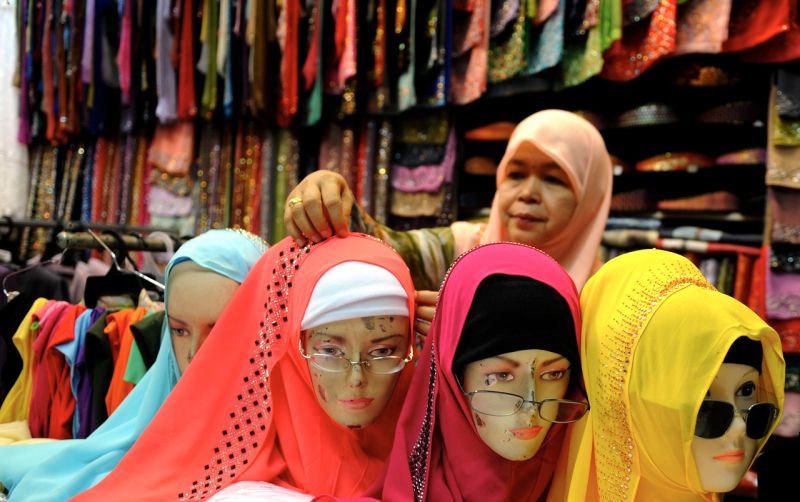KUALA LUMPUR, Oct 15 ― Over 60 per cent of Malaysian Muslim women believe they can be good adherents of the faith without covering their heads.
At the same time, the survey by rights group Sisters in Islam (SIS) on Muslim women’s realities in Malaysia published today found that the respondents’ views of hijab can be contradictory.
“The data showed that 83 per cent felt they had a right to choose whether or not to wear a hijab … 62 per cent of the respondents felt that it is acceptable for a Muslim woman not to wear a hijab.
“In a different set of questions on the issue of right and wrong under the religion, 90 per cent felt that wearing a hijab is mandatory for Muslim women,” said the report titled “Perception and Realities: The Public and Personal Rights of Muslim Women in Malaysia”.
A whopping 88 per cent of Muslim women in East Malaysia felt that one can be a good Muslim even without wearing the hijab.
East Malaysia also had the lowest proportion of respondents who felt that hijab is compulsory, at 74 per cent, compared to 97 per cent in the East Coast and the North.
The survey was implemented by research firm Ipsos between 2018 and 2019 through two phases, with the quantitative phase involving 675 Muslim women across the country aged between 18 and 55.
There are differing views among Muslim scholars as to whether it is obligatory for Muslim women to cover their hair as part of the aurat, or “intimate parts”.
Speaking to Malay Mail in 2016, SIS said the Muslims’ holy book Quran does not specifically mention hair as part of a woman’s “aurat”.
SIS said the interpretation of the “aurat” in Malaysia has become increasingly influenced by Arab culture since the 1980s, noting that most Malay-Muslim women did not wear the tudung during the 1950s and 1960s, including the wife of the then Kelantan mufti and the spouse of Indonesian ulama, Prof Dr Haji Abdul Malik Karim Amrullah, better known as Hamka.
In March this year, three women were investigated by the Selangor Islamic Religious Department (Jais) for a forum on Malay women and discarding the hijab.
The event organised by publisher and book store Gerakbudaya received backlash from some Muslims on social media, after positively presenting the perspectives and opinions of several Malay women who “dehijab”, or no longer cover their hair.
Muslim women celebrities also face intense demonisation after they discard their hijab, such as actress Emma Maembong who revealed that Malaysians online have left harsh comments on her social media accounts, including wishing hell for her.
In 2016, local celebrity Uqasha Senrose also came under intense fire from fans after going bareheaded after covering up her tresses three years ago.



















